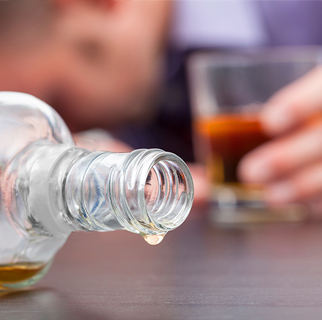Binge Drinking
"Those in younger age groups are still the most likely to binge, but we can chart the proportion doing so falling steadily since the mid-2000s.""When you get to middle age -- 40s and 50s -- the levels have remained pretty stable over time. People in their 60s and over are still the least likely to binge, but their levels are steadily creeping up -- and that's totally at odds with the trend among the younger age group."Colin Angus, senior research fellow, Sheffield Alcohol Research Group"I really think the definition of binge drinking should be different for older adults.""We currently have the same definition of binge drinking for a 20-year-old as we do for a 70-year-old, and that's not good for public education or health.""The fancy name for the problem here is 'zero-order kinetics". Basically, no matter how much you drink, your liver will always process it at the same rate.""If you have binged on eight units of alcohol, it's only going to to be fully metabolized after eight hours. After an hour, you'll still have seven units of alcohol in your bloodstream."Tony Rao, visiting researcher, King's College London

 |
"Once I hit 40, the impact of alcohol really cranked up a gear or three."
"The older you get, the less forgiving your body and mental health are."
"My 'hangxiety' -- those anxious feelings the morning after -- would be sky-high."
Susan Laurie, speaker on mindful drinking for workplace webinars
Middle age drinkers are now known in today's social climate, to commit to rates fairly comparable to those seen among ypunger colleagues. If you're a woman, six units constitutes a "binge"; comprised of two large glasses of wine or a couple of strong cocktails. For a man, it's eight units; roughly three pints of cider, four of normal-strength beer, or five bottled beers.
 |
Risk associated with binge drinking is not quite the same across the board; it varies from person to person. Women face greater potential risks inherent in binge drinking, as do people with a brain injury, with heart or liver disease, along with older people. With time, the liver shrinks, its function tends to deteriorate with age.
"The older you get, the smaller your liver, especially among women, so the rate at which you metabolize alcohol is probably even slower. Toxins therefore stay in our blood for longer, doing more damage to our health. Your brain also becomes much more sensitive to alcohol, so you'll be sedated much more quickly. Plus, you have less water in your blood so the alcohol is more concentrated", cautions Tony Rao.
According to Sally Adams, associate professor at University of Birmingham's school of psychology specializing in alcohol use and hangovers, "When we drink alcohol, one of the first regions of the brain affected is the prefrontal cortex, which is responsible for our higher thought processes, such as decision-making." Clearly, binging leaves one at greater risk of accidents through impaired judgement, and co-ordination, in contrast to drinking a similar quantity of alcohol across the space of a week.
"Older people are more likely to binge drink at home and are more susceptible to acute risks like falling down the stairs while doing so", points out Colin Angus. Then there is what's called "Holiday Heart Syndrome" which occurs when binge drinking disrupts the firing of neurons; electrical impulses that regulate heart function; resulting in irregular heat beats, leading to a sudden lack of blood supply to major organs like the brain and kidneys.
 |
"Not only does repeated binge drinking -- once a week or more -- increase the risk of permanently high blood pressure, but a single episode of binge drinking also raises blood pressure. Both raise the risk of stroke, particularly in older people", added Tony Rao.
"Drinking too much heightens your risk of any number of diseases."
"But when it comes to cancer, for example, there's no evidence to suggest that the pattern in which you drink affects your risk. It's the overall units consumed that counts, regardless of whether you drank them across the week or downed them all on Friday night."
Colin Angus, Sheffield Alcohol Research Group
Labels: Binge Drinking, Health Consequences, Studies

0 Comments:
Post a Comment
<< Home